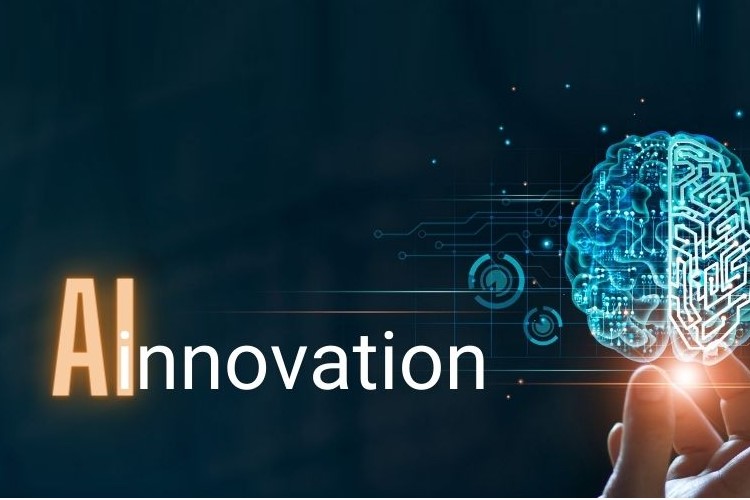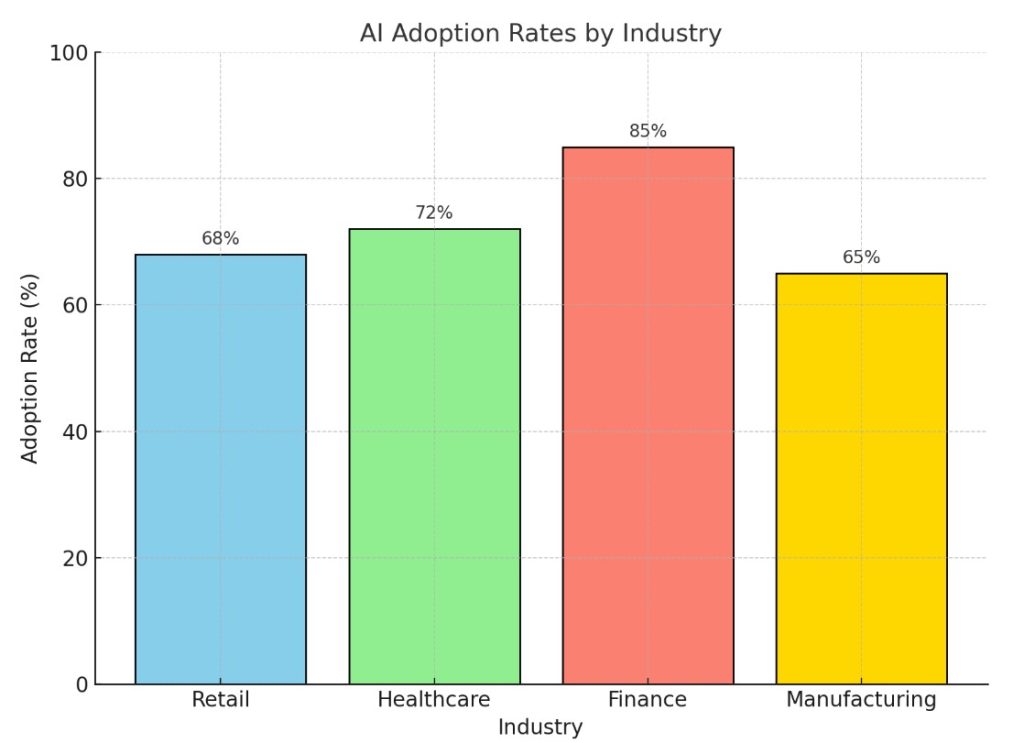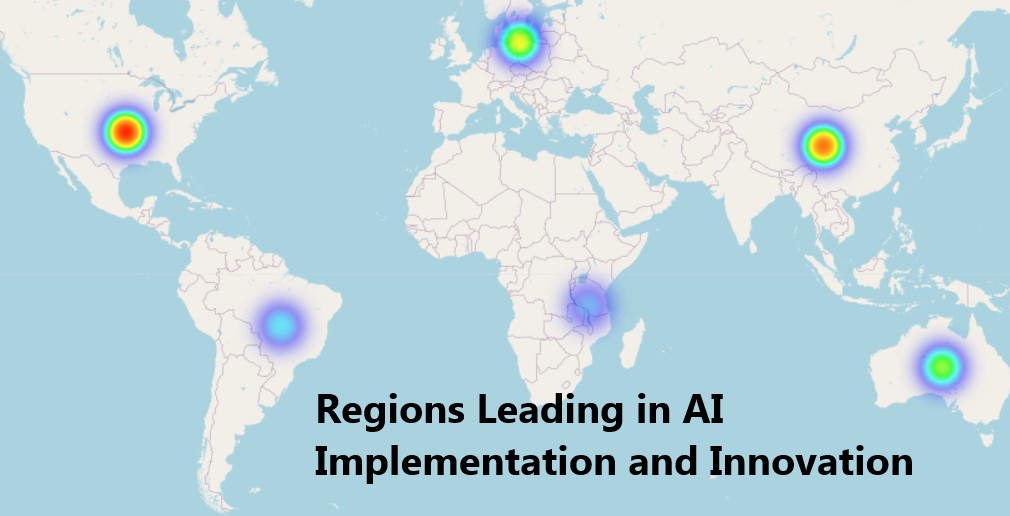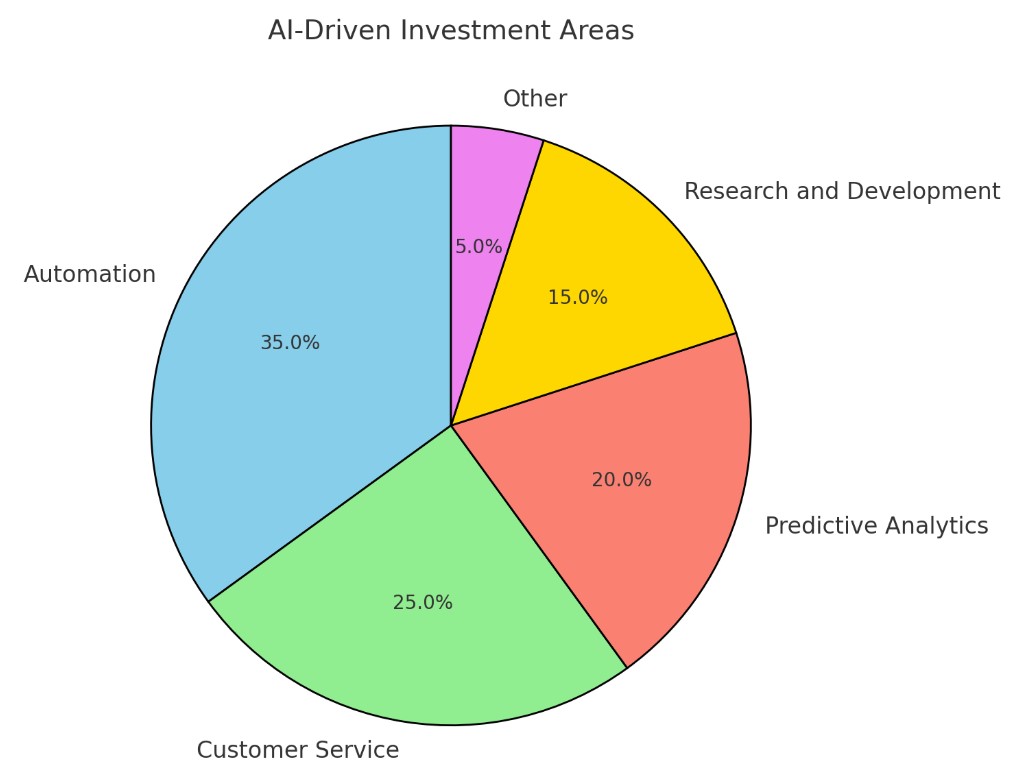 AI and business innovation are transforming how companies operate, innovate, and grow. By integrating advanced technologies, you can enhance decision-making and drive efficiency. Additionally, AI enables personalized customer experiences and streamlines processes, helping your business remain competitive in a rapidly changing market.
AI and business innovation are transforming how companies operate, innovate, and grow. By integrating advanced technologies, you can enhance decision-making and drive efficiency. Additionally, AI enables personalized customer experiences and streamlines processes, helping your business remain competitive in a rapidly changing market.
However, adopting AI also brings challenges like ethical considerations, data privacy, and the need for transparency. Addressing these issues ensures responsible implementation and builds trust with your audience. Furthermore, staying informed about trends like generative AI and autonomous systems allows you to adapt and remain at the forefront of your industry.
AI and Business Innovation offer endless opportunities for growth and adaptation. By leveraging its potential thoughtfully, you can position your organization for long-term success in an increasingly data-driven world.
Understanding the Role of AI in Modern Business
Artificial intelligence is transforming modern business by reshaping industries and driving innovation across various functions. From streamlining operations to enhancing customer experiences, AI provides solutions that improve efficiency and decision-making. Additionally, AI allows businesses to analyze vast amounts of data quickly, uncovering insights that were previously difficult to access.
However, the impact of AI extends beyond operational improvements. In retail, for example, AI enables personalized recommendations, improving customer satisfaction and increasing sales. In healthcare, machine learning algorithms assist in diagnosing diseases and optimizing treatment plans. These examples highlight the diverse applications of AI and Business Innovation, demonstrating its versatility across sectors.
Adopting AI also helps businesses remain competitive in a rapidly evolving market. Predictive analytics allows you to anticipate trends and make informed decisions. Furthermore, automating repetitive tasks frees up resources, enabling teams to focus on strategic initiatives. As AI technology advances, its role in business will continue to expand, offering new opportunities for growth and transformation.
Understanding how AI integrates into your business is key to leveraging its potential. By focusing on tailored solutions, you can maximize the benefits of AI while aligning it with your goals. This approach not only improves outcomes but also positions your business as a leader in innovation.
AI-Powered Solutions for Streamlining Operations
AI-powered solutions are revolutionizing operations by helping businesses improve efficiency, reduce costs, and enhance decision-making. Automating repetitive tasks with AI streamlines workflows and allows teams to focus on higher-value activities. Additionally, AI tools analyze large datasets quickly, providing insights that drive better and faster decisions.
For instance, predictive maintenance systems use AI to identify potential equipment failures before they occur, minimizing downtime and reducing repair costs. Similarly, AI-powered inventory management systems optimize stock levels, ensuring products are available when needed without overstocking. These examples illustrate how AI and Business Innovation go hand in hand to create more efficient operations.
However, the benefits of AI extend beyond automation and cost savings. Decision-making processes improve as AI identifies patterns and trends in real time, enabling businesses to act proactively. For example, supply chain managers can use AI to adjust logistics based on current conditions, avoiding delays and improving customer satisfaction. These advancements not only enhance efficiency but also increase competitiveness.
Adopting AI-powered solutions allows your business to achieve operational excellence while adapting to changing demands. By integrating these tools, you can reduce inefficiencies, control costs, and make smarter decisions. As AI technology evolves, its potential to transform operations will continue to grow, driving innovation and growth.
Enhancing Customer Experiences with AI
AI is transforming customer experiences by creating more engaging and effective interactions through personalization, chatbots, and predictive analytics. AI-driven personalization tailors recommendations and content to individual preferences, making shopping or browsing experiences more relevant and enjoyable. Additionally, personalized offers based on past behavior build stronger customer relationships and improve loyalty.
Chatbots are another example of AI and Business Innovation in enhancing customer interactions. These tools provide instant, 24/7 support, answering questions or resolving issues without human intervention. Furthermore, advanced chatbots can handle complex queries, creating seamless interactions that feel natural. This approach not only improves response times but also reduces the workload on customer service teams.
Predictive analytics adds another layer of innovation by anticipating customer needs and behaviors. For instance, AI analyzes purchase history to recommend products or predict when a customer might need to reorder. Additionally, predictive tools can identify trends, helping you refine marketing strategies or optimize inventory. These insights ensure your business stays one step ahead of customer expectations.
Integrating AI into customer experience strategies allows you to deliver tailored, efficient, and proactive service. By leveraging these tools, you create meaningful interactions that set your business apart. As AI continues to evolve, its role in shaping customer experiences will only grow, driving innovation and satisfaction.
AI in Data-Driven Decision Making
AI is revolutionizing data-driven decision making by enabling businesses to extract valuable insights quickly and effectively. Machine learning and advanced analytics allow you to identify patterns, trends, and correlations in large datasets. Additionally, AI tools can process data far faster than manual methods, making it easier to adapt to changing conditions.
For instance, AI-powered forecasting models help predict demand, optimize inventory, and improve resource allocation. These insights allow you to make smarter decisions that align with your business objectives. Furthermore, predictive analytics provides actionable recommendations, enabling you to act proactively instead of reacting to market shifts. These capabilities exemplify how AI and Business Innovation drive smarter strategies.
However, the value of AI extends beyond operational efficiency. Decision-making tools powered by AI provide real-time insights, helping you respond to emerging trends faster than competitors. For example, analyzing customer behavior can guide personalized marketing efforts or reveal untapped opportunities. Additionally, AI can detect anomalies in financial data, mitigating risks and enhancing accuracy in reporting.
Integrating AI into your decision-making process allows you to unlock the full potential of your data. By using AI-driven insights, you can align your strategies with both current trends and future opportunities. This approach not only streamlines operations but also positions your business for sustainable growth and innovation.
Challenges and Ethical Considerations in AI Adoption
Adopting AI technologies comes with challenges and ethical considerations that businesses must address to use them responsibly. Bias in AI algorithms is a significant concern, as it can lead to unfair outcomes or reinforce stereotypes. Additionally, ensuring that training data represents diverse groups helps mitigate these risks and promotes fairness.
Privacy is another critical issue when implementing AI. Customers expect their data to be protected and used transparently. Therefore, you must prioritize secure systems and obtain clear consent when collecting or processing personal information. Furthermore, communicating how AI systems use data builds trust and aligns with ethical standards.
Transparency in AI operations is essential for responsible use. For example, explaining how AI makes decisions helps users understand its recommendations and reduces skepticism. Additionally, providing mechanisms for oversight and accountability ensures that AI applications remain aligned with your business values. These considerations highlight how addressing ethics supports AI and Business Innovation effectively.
Balancing the benefits of AI with its ethical challenges strengthens your strategy and builds credibility. By addressing bias, privacy, and transparency, you create solutions that respect user rights and maintain trust. A thoughtful approach to AI adoption not only fosters innovation but also ensures it is implemented responsibly and sustainably.
Future Trends in AI and Business Innovation
Emerging AI technologies are set to reshape the business landscape, driving innovation and efficiency across industries. Generative AI, for example, is enabling businesses to create content, designs, and solutions faster than ever. Additionally, this technology supports creativity in areas like marketing, product development, and customer engagement, enhancing workflows and outcomes.
Autonomous systems are another major trend shaping the future of AI and Business Innovation. These systems, including self-driving vehicles and automated supply chains, are streamlining operations and reducing human intervention in repetitive tasks. Furthermore, advances in robotics are improving precision and scalability in manufacturing and logistics, offering businesses significant competitive advantages.
However, the impact of these technologies goes beyond operational improvements. Predictive capabilities in AI are becoming more accurate, allowing businesses to anticipate trends and adapt strategies proactively. Additionally, AI-powered decision support systems are helping organizations make data-driven choices with greater confidence. These advancements position businesses to respond quickly to market changes and customer needs.
The future of AI holds exciting possibilities for transforming how businesses operate and grow. By embracing emerging technologies like generative AI and autonomous systems, you can position your business at the forefront of innovation. Staying informed about these trends allows you to leverage their potential and adapt to an evolving market landscape.
Conclusion
AI and Business Innovation continue to redefine how organizations operate, grow, and adapt to changing markets. From enhancing customer experiences to streamlining operations, AI offers transformative potential across industries. Additionally, its ability to provide data-driven insights helps businesses make smarter, faster decisions and stay competitive.
However, adopting AI requires careful planning and attention to ethical considerations like bias, transparency, and privacy. Addressing these challenges ensures responsible use and builds trust with customers and stakeholders. Furthermore, keeping pace with emerging technologies like generative AI and autonomous systems positions your business for long-term success.
By leveraging AI effectively, you unlock opportunities to innovate and thrive in an evolving landscape. Staying informed and proactive about AI trends allows you to adapt strategies, meet customer expectations, and lead in your industry. A thoughtful approach to AI adoption not only enhances your business but also fosters sustainable growth and innovation.





